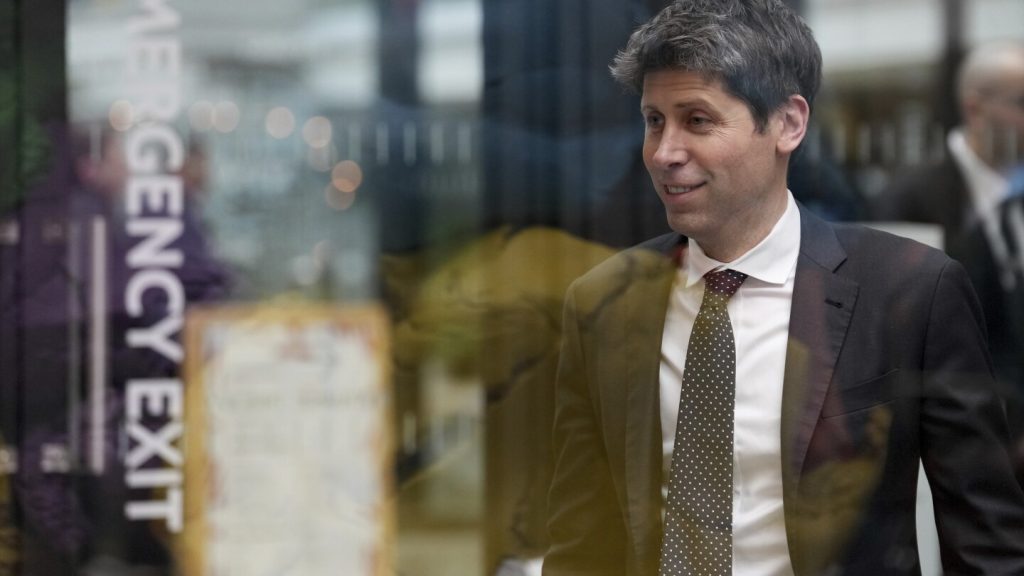OpenAI CEO Sam Altman Rejects Musk’s $97.4 Billion Bid
PARIS (AP) — OpenAI CEO Sam Altman has firmly dismissed a $97.4 billion takeover bid led by rival Elon Musk, asserting that the company is not for sale. The unsolicited offer, announced on Monday, adds another layer of complexity to Altman’s ongoing efforts to transform OpenAI, the maker of ChatGPT, into a for-profit entity. This bid is the latest development in a years-long battle between Altman and Musk, who co-founded the AI startup a decade ago as a nonprofit. “We are not for sale,” Altman declared at an artificial intelligence summit in Paris, emphasizing OpenAI’s mission to ensure that artificial general intelligence (AGI) benefits all humanity. “We are an unusual organization, and we are here to do that,” he told France’s AI minister during a discussion mobbed by tech industry professionals and investors.
A Bitter Feud Over Control of OpenAI
The public feud between Altman and Musk has escalated over the past year, with Musk suing OpenAI and actively growing his own AI company, xAI, part of his vast business empire that includes Tesla, SpaceX, and the social media platform X. Musk, who now serves as a top adviser to President Donald Trump, has publicly questioned OpenAI’s Trump-backed private investment project for building AI data centers in the United States. The roots of this conflict date back to 2018 when an internal power struggle left Altman in charge, prompting Musk to quit OpenAI. Since then, the two have been locked in a high-stakes battle over the direction and control of the AI startup.
What Happens Next?
The offer complicates OpenAI’s plan to shift its structure from a nonprofit to a company beholden to shareholders. OpenAI’s nonprofit board, not Altman alone, will need to consider Musk’s offer. Bret Taylor, the chair of the board, echoed Altman’s stance, declaring “OpenAI is not for sale” at a Wall Street Journal event in California. Taylor characterized Musk’s move as “largely a distraction” from the board’s fiduciary duty to its mission. As a nonprofit board, their primary responsibility is to ensure that any strategic decision furthers the mission of ensuring AGI benefits humanity. The board will need to weigh the value of the company’s assets and the value of controlling the technology. Musk’s offer also sets a floor for how much the nonprofit should be paid if it relinquishes control of its subsidiaries.
Legal and Ethical Considerations
The board will need to consider the credibility of Musk’s offer, including whether he and his investors can pay in cash, and whether a new board under Musk’s control would remain independent and committed to the public mission. The sudden popularity of ChatGPT in 2021 brought worldwide fame and new commercial possibilities to OpenAI, but it also intensified internal turmoil over the future of the organization and the advanced AI it was developing. The nonprofit board fired Altman in late 2023, only to reinstate him days later with a new board. The complications of OpenAI’s nonprofit status are significant. Horwitz, a professor at UCLA School of Law, emphasizes the legally binding purpose of the nonprofit, which is to ensure that AGI benefits all humanity. Violating this promise could be seen as a breach of trust.
Musk’s Legal Challenges
Musk sued OpenAI last year, alleging it had betrayed its founding aims as a nonprofit research lab that would benefit the public good. He claims to have invested about $45 million in the startup from its founding until 2018. Lawyers for OpenAI and Musk faced off in a California federal court last week as a judge considered Musk’s request for a court order to block OpenAI’s for-profit conversion. The judge has yet to rule, but she indicated that while Musk’s claims might be plausible, they might not warrant immediate intervention. The bid is backed by a group of investors including Baron Capital Group, Valor Management, Atreides Management, Vy Fund, and firms run by Musk allies Ari Emanuel and Jon Lonsdale. Toberoff, Musk’s attorney, stated that if Altman and OpenAI’s current board “are intent on becoming a fully for-profit corporation, it is vital that the charity be fairly compensated for what its leadership is taking away from it: control over the most transformative technology of our time.”
Altman’s Response and the Future of OpenAI
Altman told employees this week that OpenAI’s structure “ensures that no individual can take control of OpenAI” and has characterized Musk’s tactics as those of a competitor trying to catch up. “I think he’s probably just trying to slow us down. He obviously is a competitor,” Altman told Bloomberg TV at the Paris summit. The personal nature of their feud was evident when Altman commented on Musk’s emotional state, suggesting that Musk might be acting from a place of insecurity. “Probably his whole life is from a position of insecurity. I feel for the guy,” Altman said. As the battle over OpenAI continues, the future of this pioneering AI company and the technology it develops remains uncertain, with significant implications for the broader AI landscape.












